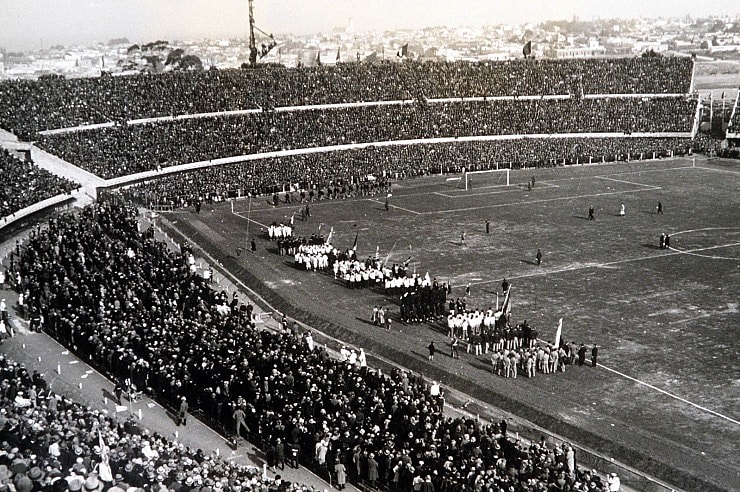
![]()
Predictor Team
Apr 14, 2025
Womens Football Predictor: The Ultimate Online Team Building Activity for 2025
If you own a business and love football, it is a no-brainer to us that you’d enjoy taking part in our football predictor for business.
![]() Predictor Team
Predictor Team
May 17, 2022

As Noise Agency launches its World Cup Predictor 2022, it’s worth taking a look back to see where it all began, over ninety years ago. It might seem like the world cup has been around forever, but in fact there have only been twenty-one tournaments held since it all began back in 1930.
Olympic Origins
The Football World Cup has its origins in the early Olympic Games. The tournament involved amateur teams that were about as different from the millionaire professional players of today as you can get. Football was first part of the Olympics as far back as 1900, thirty years before the first World Cup, with England winning the tournament at consecutive Olympic Games in 1908 and 1912.
Unfortunately, there were problems with the amateur status of players and by the time they started planning the 1932 Olympics in Los Angeles, football had been dropped from the Games entirely.
The First World Cup
The problems with the Olympics prompted FIFA to set up their own international tournament, though once again this was a far cry from the global carnival that it is today. Uruguay were chosen as the hosts as they were the reigning Olympic champions. The tournament also formed part of the country’s centenary celebrations.
Unlike today, when competition for places is fierce, FIFA struggled to get national teams to take part in the first World Cup. There were political tensions within South America and many European countries baulked at the cost of sending their teams and support staff halfway around the world. Eventually just thirteen teams agreed to take part, with just four travelling from Europe and seven home nations from South America, along with Mexico and the United States. No Asian or African nations took part.
The First Winners
France’s Lucien Laurent wrote his name into the history books with the first ever World Cup goal, in his side’s 4-1 victory over Mexico. However, it was an American who scored the first hattrick, with Bert Patenaude scoring all of USA’s three goals against Paraguay.
The Jules Rimet Trophy was lifted for the first time on June 30th by the home team, Uruguay, who beat neighbouring Argentina 4-2 in Montevideo. The final was a thrilling affair for the capacity crowd of 93,000, with the home side scoring first, after just 12minutes, only to go in 2-1 down at half time. Three second half goals soon turned the tide, giving Uruguay a famous 4-2 victory.
A Growing Competition
Following the protests from European countries, the World Cup was moved to Italy in 1934, where three extra clubs joined the finals after the first ever qualifying rounds. Once again, it was the home side that emerged victorious – a pattern that looks unlikely to repeat as you try to pick the winners in Qatar for your World Cup Predictor 2022. Once again, they beat local rivals, with Italy winning by two goals to one against Czechoslovakia. Italy then went on to be the first team to retain the World Cup, beating Hungary 4-2 in France.
This ‘home advantage’ continued through the early years of the tournament, with Uruguay winning in brazil in 1950, following a break for the war, and West Germany winning in Switzerland in 1954. It wasn’t until Brazil won in Sweden in 1958 that the anyone won away from their home continent – a feat that would not be repeated until Brazil won again in the USA in 1994 and in Japan in 2002.
More to Come
Check the blog again next month to find out more about the history of the World Cup in the post-war period, as we build the excitement for Qatar with our World Cup Predictor 2022. To find out more about how the World Cup Predictor 2022 can help you to engage with your teams across the company, across the country and around the world, get in touch with the Noise World Cup Predictor 2022 team today.